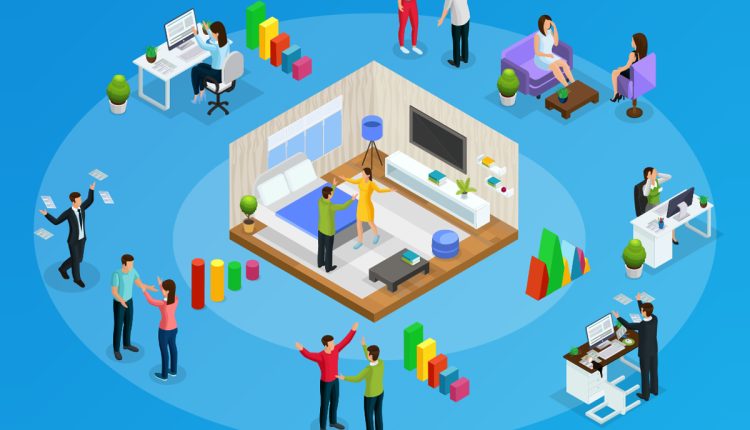The rapid evolution of the workplace has brought unprecedented challenges and opportunities for organizations. One field undergoing notable change is human resources (HR). Traditional HR practices are being replaced by innovative technologies collectively referred to as HR Technology, which aim to enhance operational efficiency, employee satisfaction, and engagement. Among the numerous advancements in HR Technology, the integration of communication platforms with employee engagement tools stands out as a game-changer. This development addresses critical challenges in fostering a connected and motivated workforce.
The Importance of Employee Engagement
Employee engagement is more than a buzzword; it is a cornerstone of organizational success. Studies consistently show that engaged employees are more productive, innovative, and loyal. Engaged workers contribute to a positive workplace culture, enhance customer satisfaction, and drive business growth. However, despite its importance, maintaining high levels of engagement remains a challenge. Many organizations struggle with siloed communication, disengaged remote teams, and inadequate feedback systems.
In this context, HR Technology is emerging as a critical enabler. It provides tools and platforms that not only facilitate seamless communication but also create personalized, engaging experiences for employees. By bridging the gap between communication platforms and engagement initiatives, HR Technology helps organizations unlock the full potential of their workforce.
The Role of Communication Platforms in Modern Workplaces
Communication platforms like Microsoft Teams, Slack, and Zoom have become essential in modern workplaces, particularly in the era of remote and hybrid work. These tools facilitate real-time collaboration, streamline workflows, and foster connectivity across geographically dispersed teams. However, while these platforms are excellent for task management and communication, they often fall short in addressing employee engagement.
Engagement is a more holistic concept that goes beyond functional communication. It involves creating an environment where employees feel valued, heard, and motivated to contribute their best. This is where the integration of communication platforms with advanced HR Technology becomes essential. By embedding engagement-focused features within everyday communication tools, organizations can transform routine interactions into opportunities for connection and collaboration.
Read More: HRTech Interview with Michelle Volberg, Founder and CEO at Twill
HRTechnology: Bridging the Gap
Next-gen HR Technology solutions are designed to seamlessly integrate with communication platforms, making engagement initiatives an integral part of daily workflows. These technologies leverage artificial intelligence (AI), machine learning (ML), and data analytics to create tailored experiences for employees. Here’s how they bridge the gap between communication platforms and employee engagement:
Real-Time Feedback and Recognition
Integrated HR Technology enables employees to provide real-time feedback and recognize their peers directly through communication platforms. For instance, a team member can celebrate a colleague’s achievement by sending a recognition badge in Slack. Such instant acknowledgment fosters a culture of appreciation and strengthens interpersonal relationships.
Pulse Surveys and Sentiment Analysis
HR Technology solutions can deploy pulse surveys within communication tools to gauge employee sentiment regularly. These surveys are quick, non-intrusive, and provide actionable insights. Advanced systems can even perform sentiment analysis on messages exchanged within the platform, helping HR teams understand employee morale and address concerns proactively.
Personalized Learning and Development
By integrating learning management systems (LMS) with communication platforms, HR Technology offers employees personalized development opportunities. For example, an employee using Microsoft Teams can receive curated training recommendations based on their role, career aspirations, and performance data. This seamless integration ensures that professional growth becomes a natural part of everyday work.
Gamification and Engagement Campaigns
HR Technology leverages gamification techniques to drive engagement. Points, leaderboards, and rewards can be embedded within communication platforms to encourage participation in wellness programs, training sessions, or team-building activities. These campaigns make work more enjoyable and foster healthy competition.
AI-Driven Insights and Predictions
Advanced HR Technology uses AI to analyze communication data and predict trends related to engagement and productivity. For example, it can identify patterns indicating burnout or disengagement and alert managers to take timely action. Such predictive capabilities empower organizations to address issues before they escalate.
Benefits of Integrated HR Technology
The integration of HR Technology with communication platforms offers several benefits:
– Improved Engagement: By embedding engagement initiatives into daily workflows, organizations ensure that employees remain connected and motivated.
– Enhanced Collaboration: Seamless communication fosters stronger relationships and teamwork, even in remote or hybrid settings.
– Data-Driven Decisions: Real-time insights from HR Technology enable organizations to make informed decisions about their workforce.
– Personalized Experiences: Tailored engagement strategies cater to individual employee needs, boosting satisfaction and retention.
– Scalability: These solutions can scale with the organization, adapting to evolving workforce dynamics.
The Future of HR Technology and Employee Engagement
As HR Technology continues to evolve, the focus will shift toward creating even more intuitive, integrated, and employee-centric solutions. Emerging trends such as virtual reality (VR) for immersive training, blockchain for secure data management, and advanced analytics for predictive workforce planning will further enhance the synergy between communication platforms and engagement tools. Additionally, as organizations embrace diversity, equity, and inclusion (DEI) initiatives, HR Technology will play a pivotal role in fostering inclusive workplaces.
Next-gen HR Technology is redefining the way organizations approach employee engagement. By bridging the gap between communication platforms and engagement strategies, these solutions enable companies to create connected, motivated, and productive workforces.
Read More : 3 Trends That Will Shape Work in 2025 And Beyond
[To share your insights with us, please write to psen@itechseries.com ]

